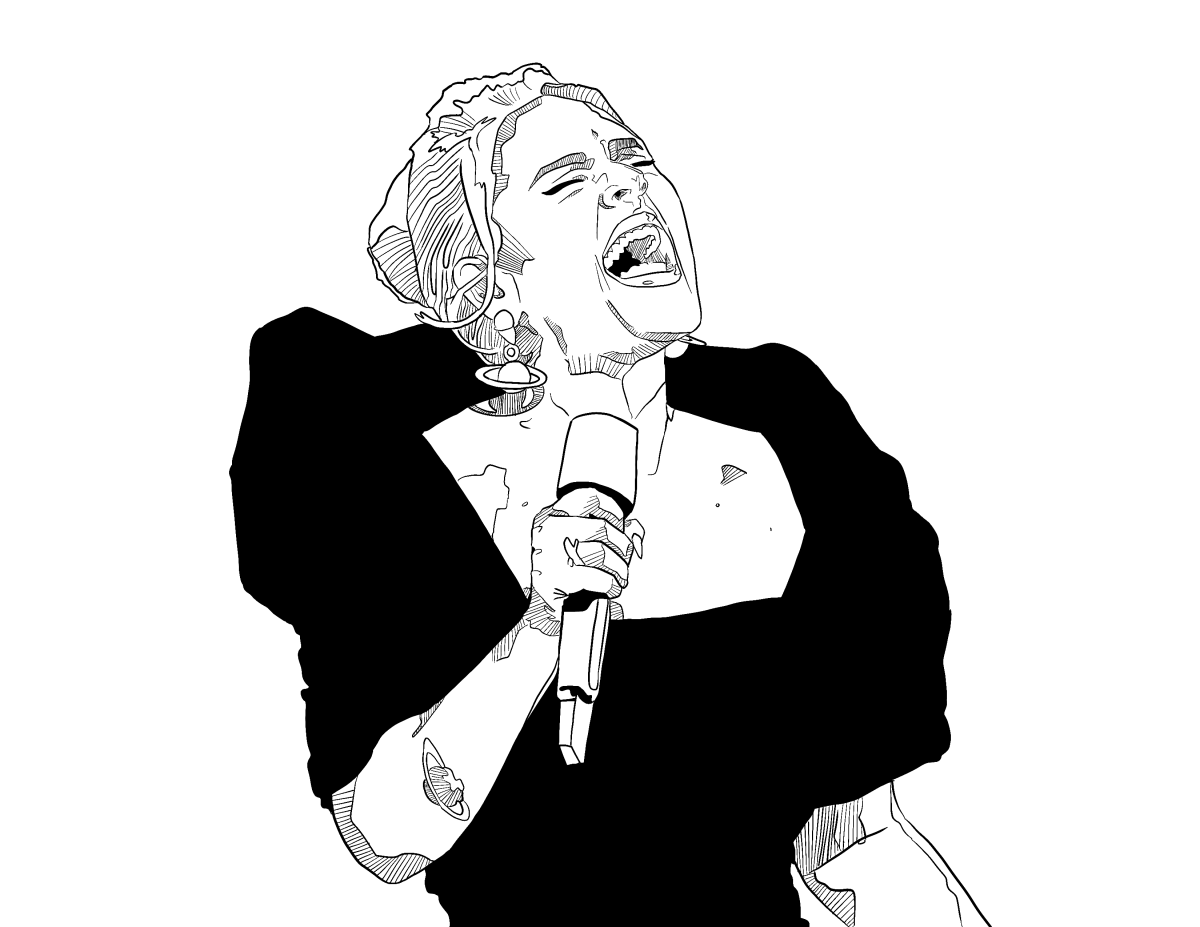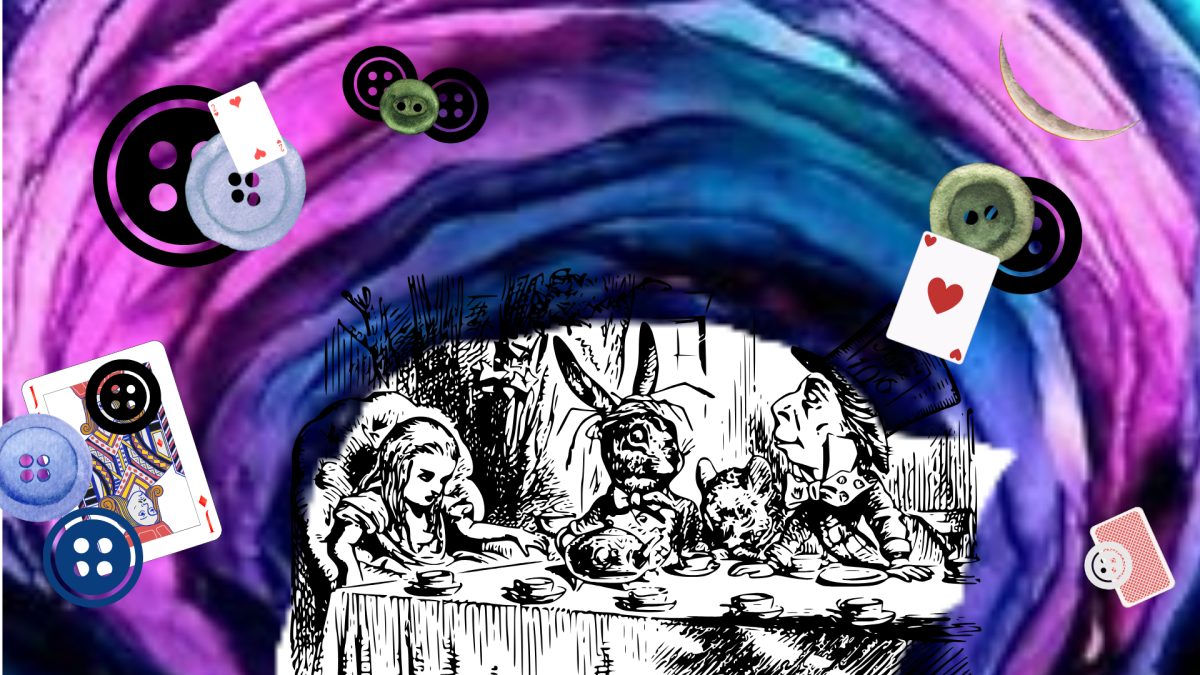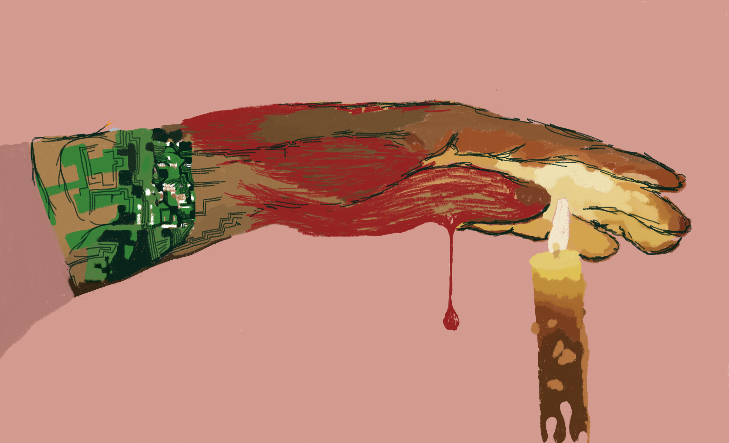At long last, British singer-songwriter Adele Adkins’ highly anticipated junior album “30” is out and available for loyal listeners to take in. Six years after the release of “25,” one of the greatest records of the 21st century and an LP which smashed record upon record, Adele attempts to create a body of work which can similarly withstand the test of time. It doesn’t go so well.
A lot happened in six years for Adele, most notably her divorce from Simon Konecki. As an aside, they reportedly started dating in mid-2011, when Adkins was just 23 and Konecki was 37 — Alexa, play “All Too Well.” But between that divorce, her ability to consistently churn out smash hits and the longest gap between projects in her career, fans have been chomping at the bit to hear “30” since she drunkenly proclaimed it would release in September 2020. That date was just a tad bit off.
But with “30”’s eventual release, and a subsequent gander at its credits, it’s surprising just how differently this work sounds than the rest of her discography. Adkins reunited with “25” collaborators Greg Kurstin, Max Martin and Shellback, and Tobias Jesso Jr., with Kurstin producing five songs to the others’ one to handle the lion’s share of the album’s production. After the intro, the quasi-ethereal “Strangers by Nature,” Kurstin produces all but one of the following six tracks.
“Strangers” is a perfect intro for “30” in that it perfectly showcases the strengths and weaknesses of the project. The orchestral elements are beautiful, but aside from the bridge, there really aren’t any sections of the song that stand out.
The intro song establishes that Adele’s chance-taking, and sometimes overthinking, intent on this record. While that’s resulted in praise from critics pleasantly surprised by a typically risk-averse artist stepping outside of her comfort zone, it lowers popular appeal and makes listening more laborious.
“Easy on Me” follows, and one can see why it was chosen to be the lead single of the album. However, it’s no “Rolling in the Deep” or “Hello.” Despite their history, Adele and Kurstin were unable to recapture their typical magic, resulting in a rare miss from Adele. She works against herself; the tempo of the song, the content of the verses versus the message of the chorus, the delivery — all these elements are at odds with one another. As an artist, Adkins is at her best when things are kept simple, and in pop that’s doubly true when trying to make a hit record.
This album is for 30 to 40-year-olds, and no song bears that out more than “My Little Love,” which I’m sure hits home for mothers more than anyone else. For the rest of us, though, the voice memos featuring her son Angelo seem gratuitous and unnecessary, especially in comparison with the voice memo which closes the track, a heartbreaking recording of Adkins alone discussing her post-divorce loneliness.
“My Little Love” isn’t about her son, though it seems that way. It’s really a dive into the inner workings of Adele’s mind, her anxieties and fears, and as such she should’ve done more to center herself in that narrative.
Jumping ahead to the other very personal song on this album, Adele buries “Woman Like Me” in the final third of the album. The only song written during the immediate aftermath of the divorce, the track is a bizarre diss record. Adele clearly pulls her punches, given that Konecki is the father of her child, but a song about how your ex was complacent and lazy doesn’t really hit home. This track is begging for the inclusion of a voice memo or recording from one of their arguments, anything to give it the venom necessary to justify including it on the album. That being said, it does have an all-time great toxic line from Adele, “I know it’s hard, but it’s not.”
The tracks that fill up the middle of the album are nothing to write home about. “Cry Your Heart Out” has the most annoying chorus on the album, and a great pre chorus can’t really fix that. On ”Oh My God,” Adele steps far away from her soul roots for a track that probably shouldn’t have made the cut for this album. “Can I Get It” brings a welcome producer switch to Martin and Shellback, which feels like it was thrown in because Sony Music wanted another pop song on the album.
“I Drink Wine,” Kurstin’s last producing contribution, showcases the holes in Adele’s writing ability. The song is unfocused, bouncing between addressing her ego, love, even the internet, but it’s all surface level with no real insight. There’s nothing there to keep anyone coming back.
“All Night Parking,” made with Erroll Garner, is cool. It’s a little U.K. R&B song about a new love, and operates as a bit of a palette cleanser before things get heavy with the aforementioned “Woman Like Me” and tracks 10-12, the trio which rounds things out.
Track 10 makes the entire album worth it. Produced by Inflo, a new collaborator for Adele and member of the super-talented collective SAULT, “Hold On” is a reminder of just how incredible Adele is when she allows herself to be at her best. Inflo’s production isn’t too busy, there are no annoying “Annie”-sounding background vocals and Adele finally cuts loose with her vocals in a release of unbridled power. “Hold On” would’ve fit well as the outro track of this album; it’s a near-perfect song.
Produced by Jesso Jr. and Shawn Everett, it’s similarly simple and simply raw, “To Be Loved” keeps the momentum going. With just her voice and a piano, Adele showcases the growth in her understanding of love, and writes possibly her best bridge: “Let it be known that I cried for you / Even started lying to you / What a thing to do / All because I wanted / To be loved…”
To end the album, “Love Is A Game” brings back Adele’s bothersome ad-libs and supporting vocals, but she overcomes those hurdles through sheer vocal ability and otherwise-great production from Inflo. Without his production, “30” would lack most of, if not all of, what little staying power it has.
“30” feels like an album that took too long to make. For nearly any type of art, long delays are indicative of a lack of coherency and singularity in vision for a product, as the work is second guessed and reworked time and time again behind the scenes. No one is immune to that, not even the greatest artist of our generation.
While it ends on an incredibly strong note, the first eight or nine songs are generally misses, and it’s just not good enough to release a 12-track album with only four quality songs on it. While Adele admirably upped the complexity of her work, quality dropped, leaving us wondering ‘Why fix something which wasn’t broken?’














